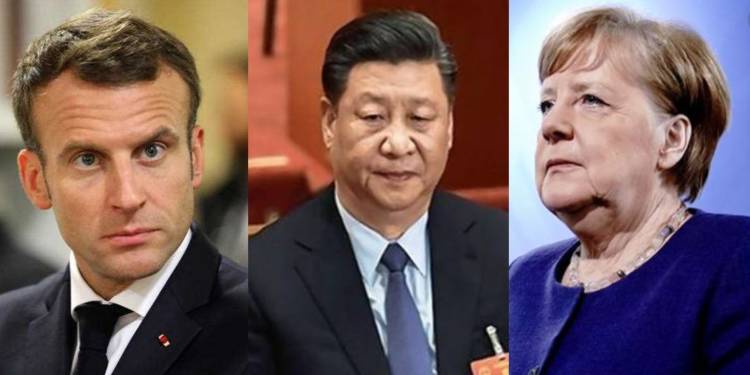Huawei’s worst fears are coming true. The Chinese telecom giant is facing fresh troubles in Europe and its 5G ambitions are virtually falling apart. The Trump administration has been critical of the Chinese telecom major for quite some time over serious accusations of espionage and security risks in its 5G technology.
However, things have started going downhill in Europe ever since the National Cyber Security Centre of GCHQ (Government Communications Headquarters)- top UK intelligence body revealed that the US sanctions barring the Chinese telecom giant from using technology relying on American intellectual property have had a “severe” impact on the technology firm.
The intelligence report creates a new set of woes for Huawei. Earlier, it was accused of posing a security threat and now it is losing the competitive edge too. The British intelligence agency believes that Huawei is relying on “untrusted” equipment.
The report came as a telling blow for whatever was left of Huawei’s 5G technology in the UK. Daily Telegraph has reported the British Government is planning to ban Huawei’s role in 5G infrastructure within the next few months, accelerating the phasing out process from the previous 3-year plan.
The spillover effect has reached France now. Paris has decided to restrict licenses for telecom operators using 5G technology from Huawei.
France’s National Agency for Security of Computer Systems, ANSSI, has said that local telecom companies- SFR and Bouygues Telecom that already use Huawei equipment will be given eight-year licenses to operate 5G technology.
Only time-limited approvals have been given to telecom operators that use the Chinese telecom giant’s 5G equipment. France is thus trying to sideline Huawei.
According to The Print, a legislator from France’s majority political party has confirmed that this is a plan to sideline Huawei.
Eric Bothorel, a member of the Cyber Security Committee in France’s National Assembly, has said that the measure to give only time-limited waivers for local operators using Huawei equipment will deter them from choosing the Chinese telecom major.
The Print quotes him as saying, “Yes, it’s a phasing out.” He added, “It won’t be a total phase-out but there will be much less Huawei in the future network.”
ANSSI Director-General Guillaume Poupard is also giving some ominous signals insofar Huawei’s 5G network ambitions are concerned. He told Les Echos, a French financial daily, that it is “the natural course of things” to reduce the presence of the Chinese telecom major in France’s communication networks.
France is not considering an outright ban on Huawei, rather its plan is to bring down the role of the Chinese telecom giant’s equipment in France’s wireless infrastructure to 13 per cent from the present 22 per cent.
Huawei thus stares at a downward spiral in France as Paris hardens its stance on the Chinese telecom major’s 5G ambitions. This is the first big blow that Huawei has faced within the European Union.
All eyes are now bound to shift onto Germany, the de facto leader of the European Union (EU). The country is already facing extensive American pressure to ban Huawei over security and dependence concerns.
Trump has even threatened to cut off intelligence sharing if Germany does not ban the Chinese telecom giant. Within Germany, leaders from Merkel’s own party, the Christian Democrats (CDU) have been campaigning against Huawei.
CDU intelligence expert Patrick Sensburg stated in July last year that he “neither trusts [5G] vendors from China, nor from the U.S,” because in both countries, “telecommunications companies need to cooperate closely with the security agencies.”
Even Germany’s Defence Minister and CDU party leader Annegret Kramp-Karrenbauer has been critical of Huawei. Anyhow, Geman Chancellor Angela Merkel has managed to sidestep the domestic criticism of Huawei thus far.
Merkel has avoided banning or restricting Huawei till now. But the UK intelligence report could sharpen the criticism of Huawei within Germany. The issue with Huawei is no longer limited to just security and dependence.
France and Germany are the biggest markets in the EU. France has already decided to phase out Huawei, and now it remains to be seen that for how long Berlin will be able to resist the pressure to restrict the Chinese telecom giant.




























